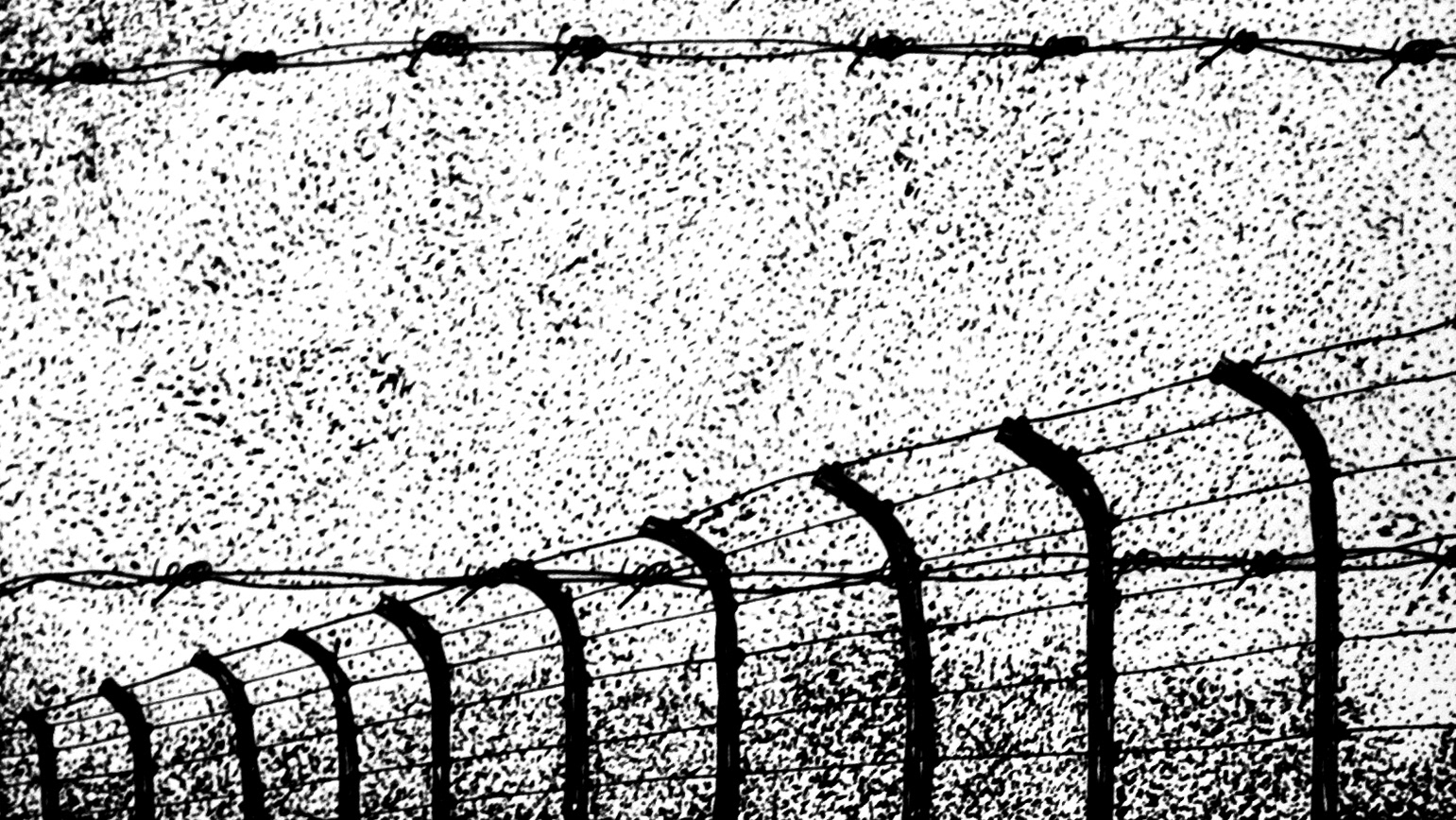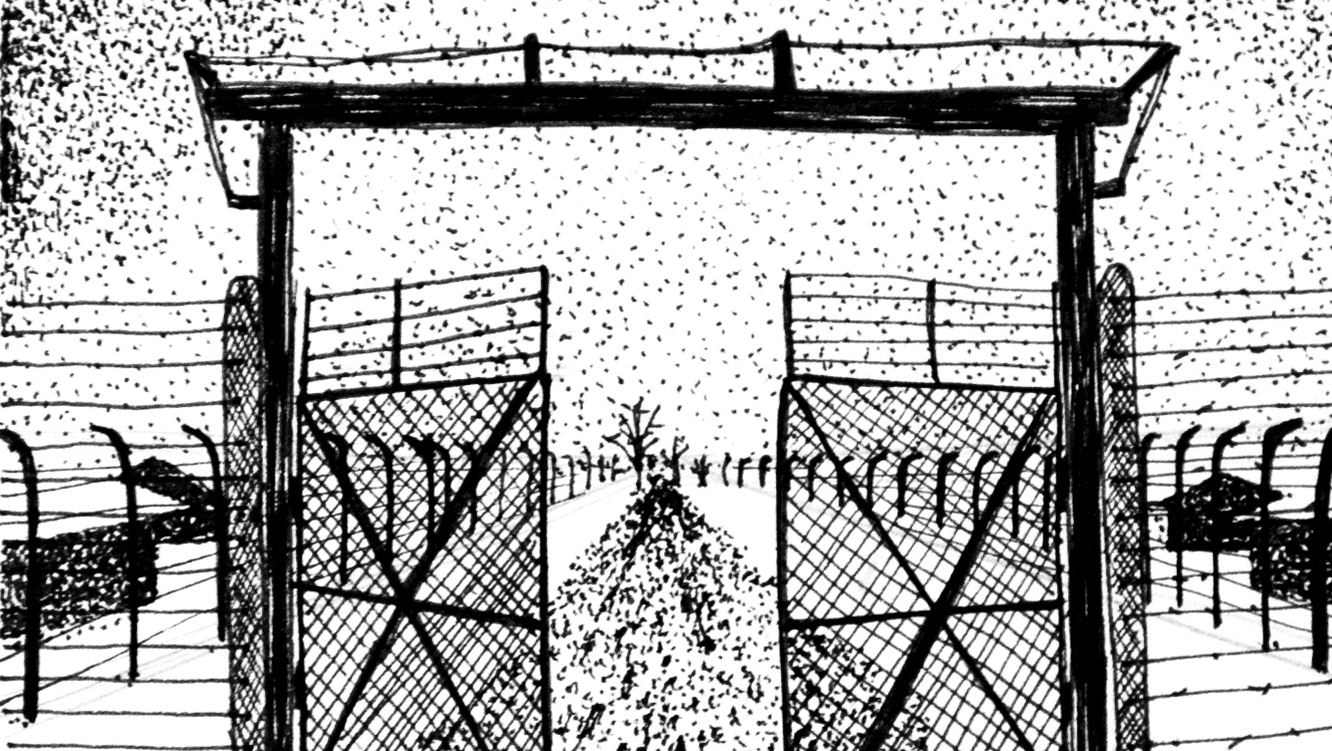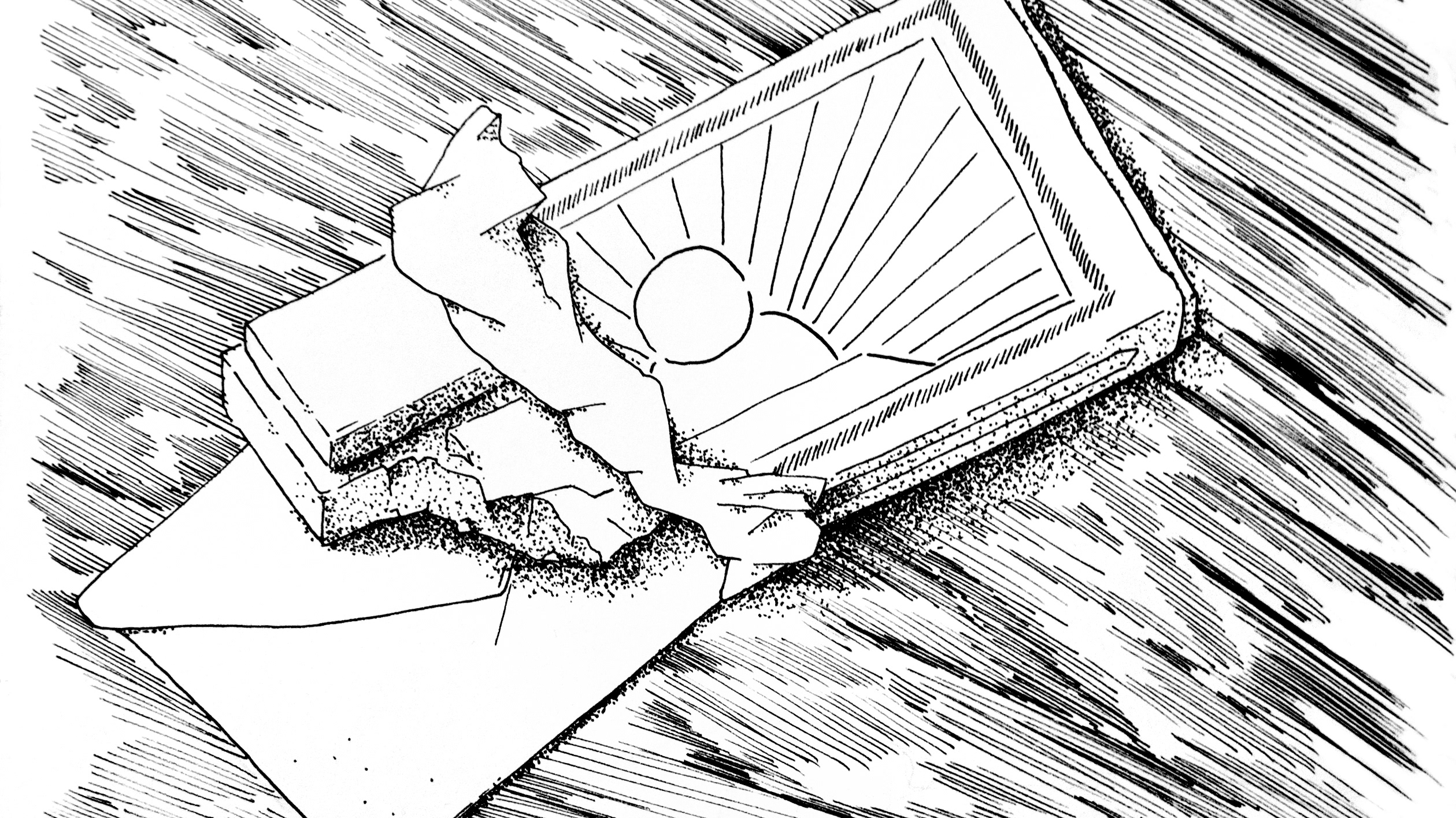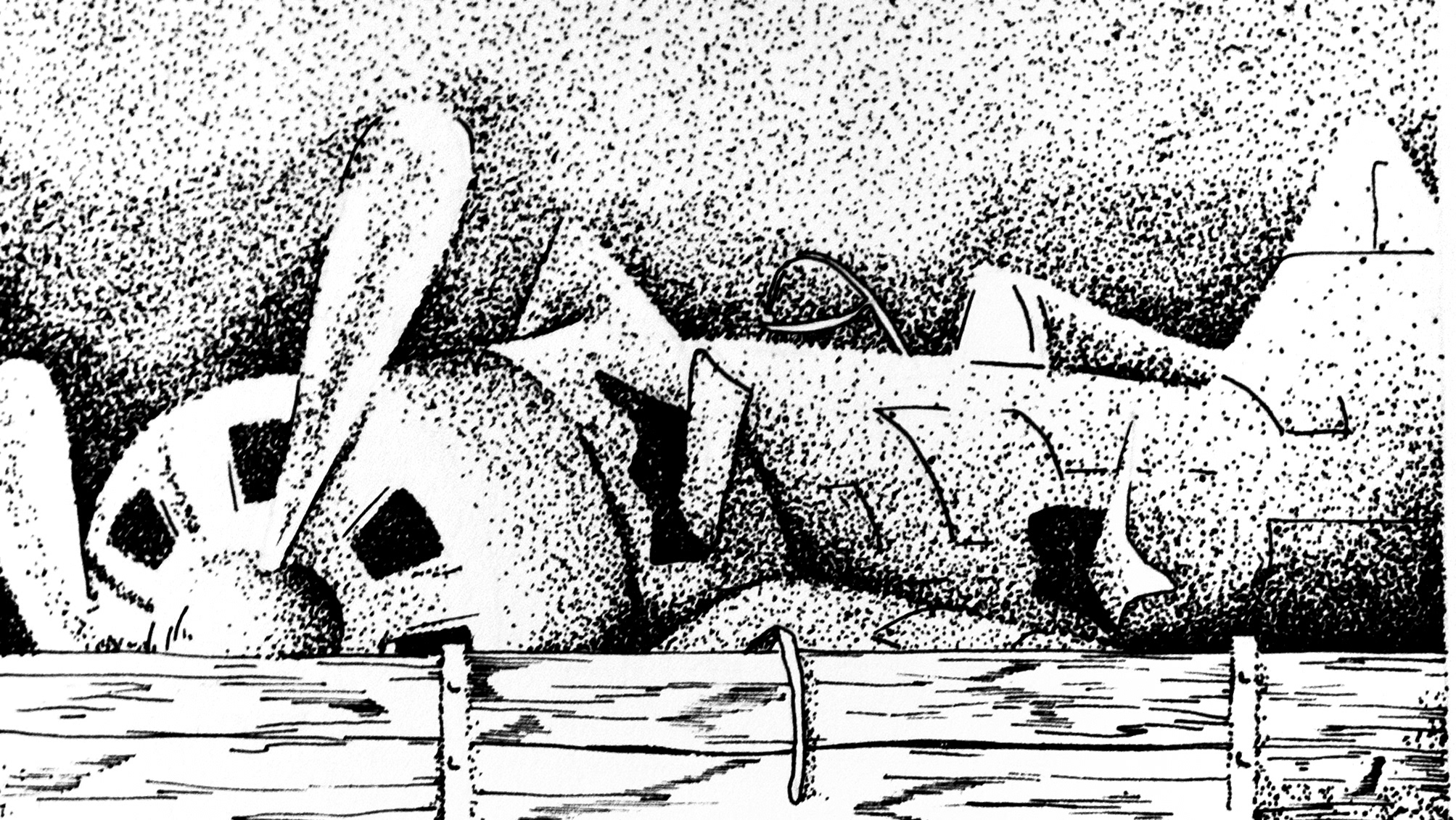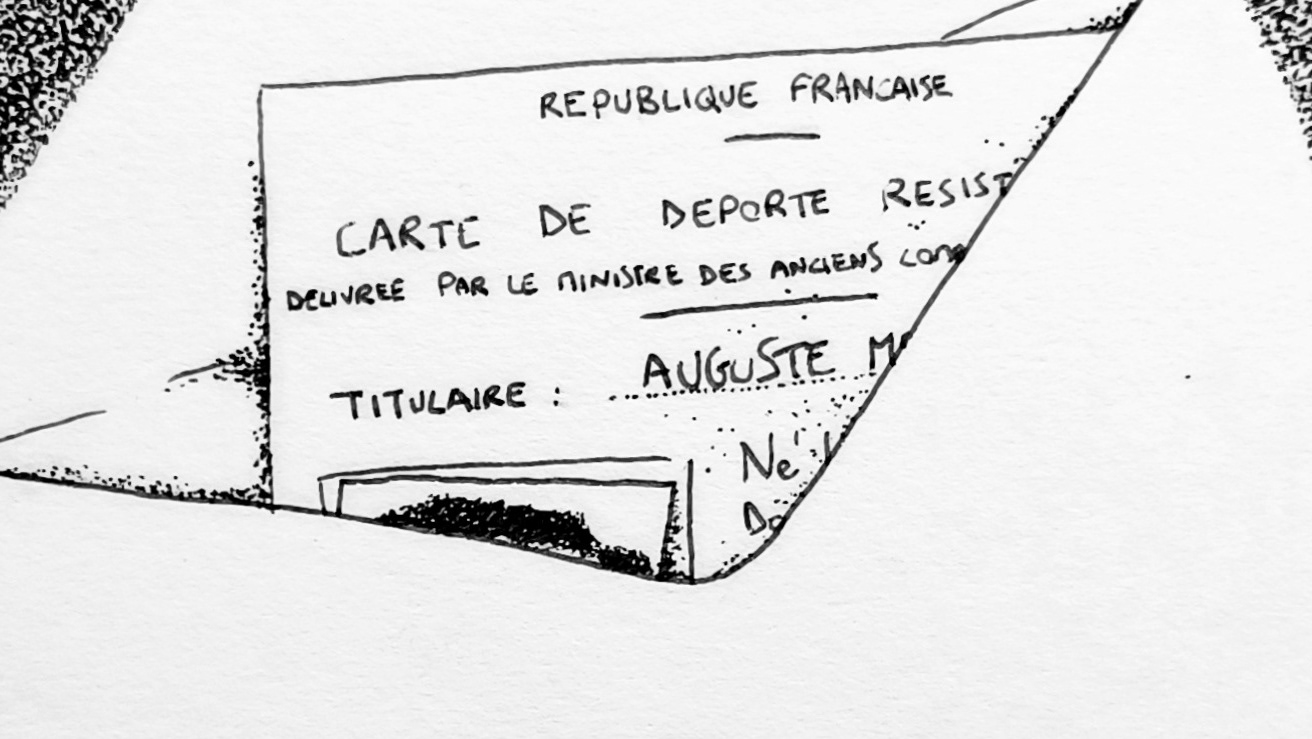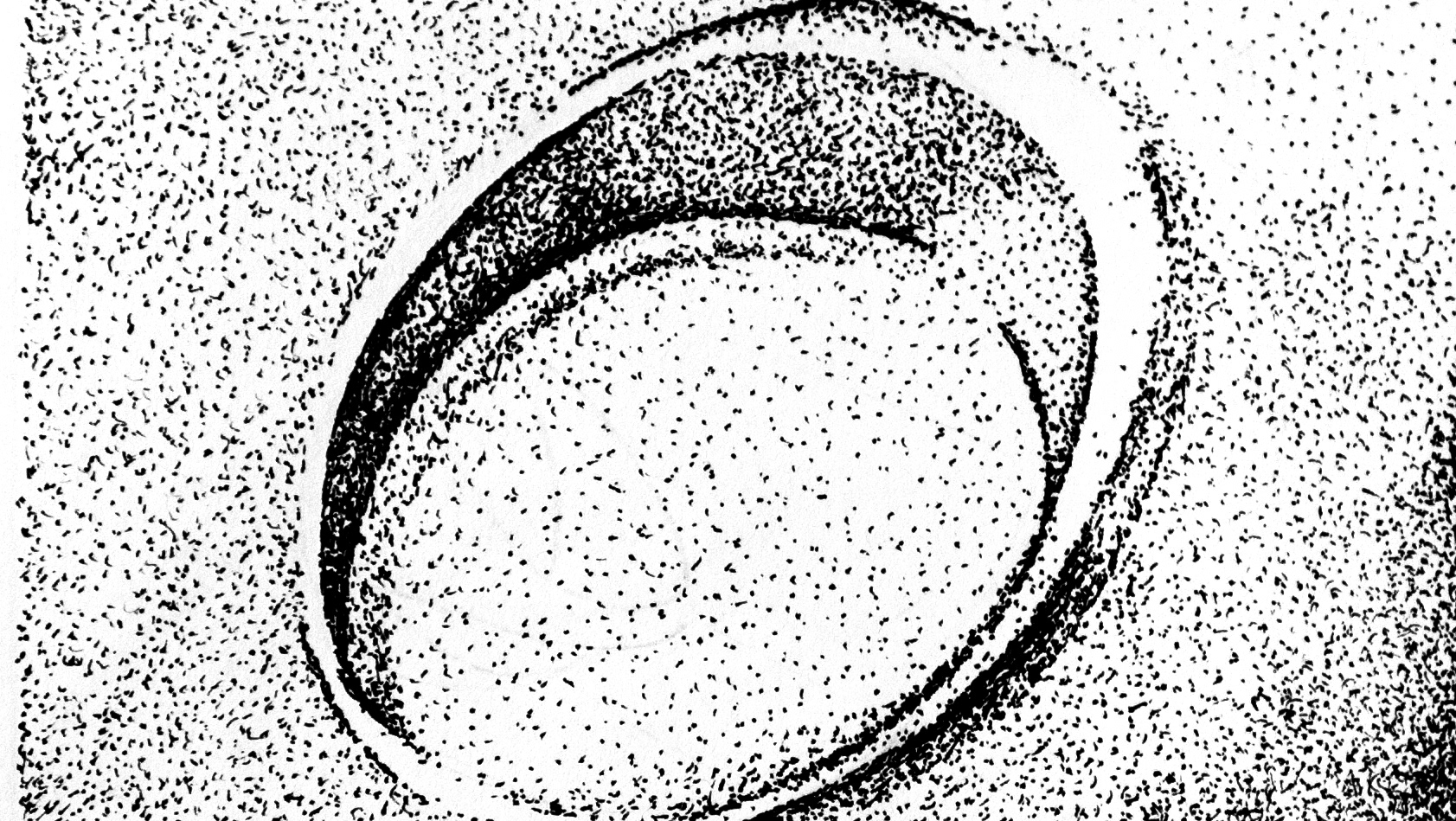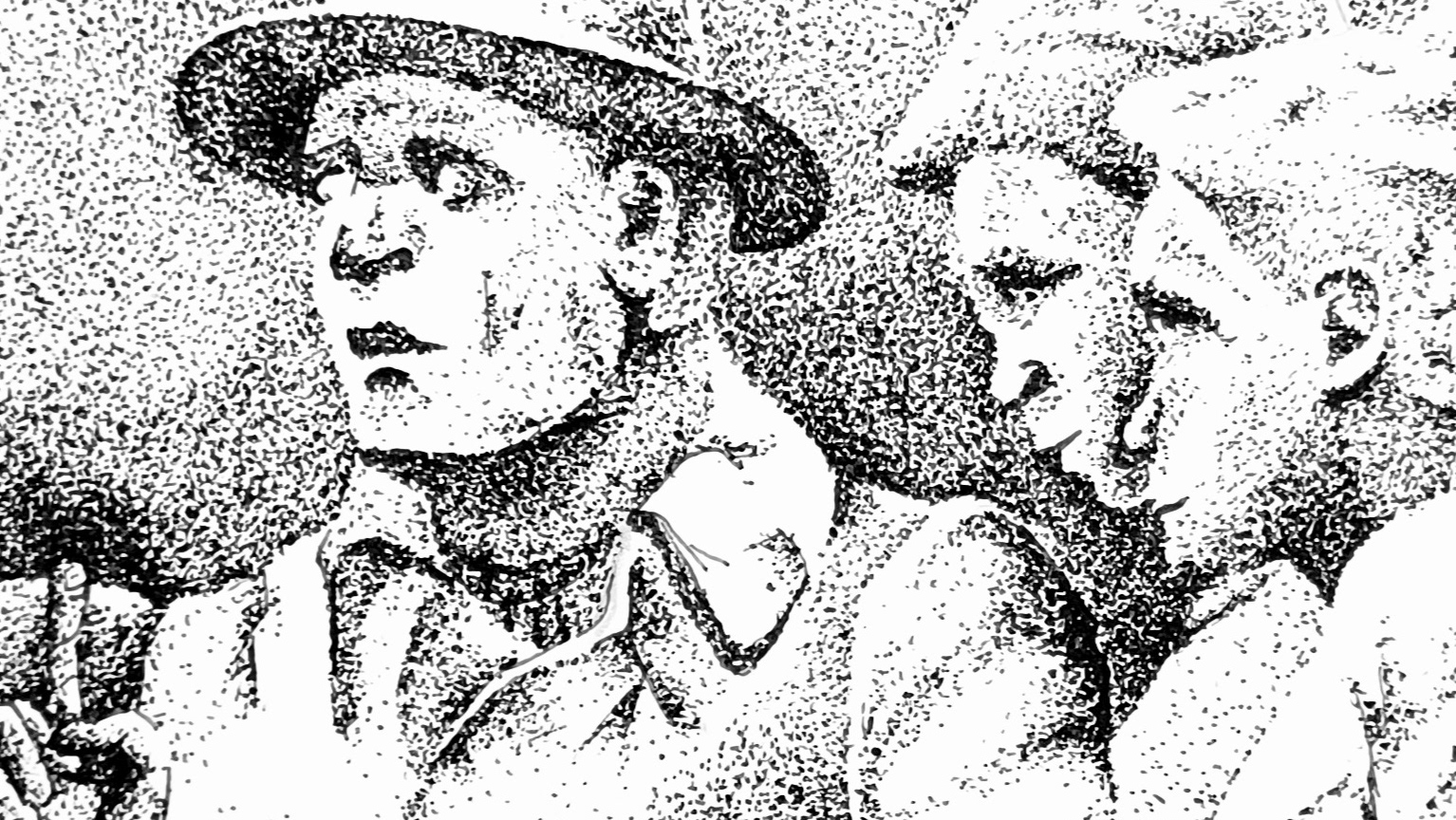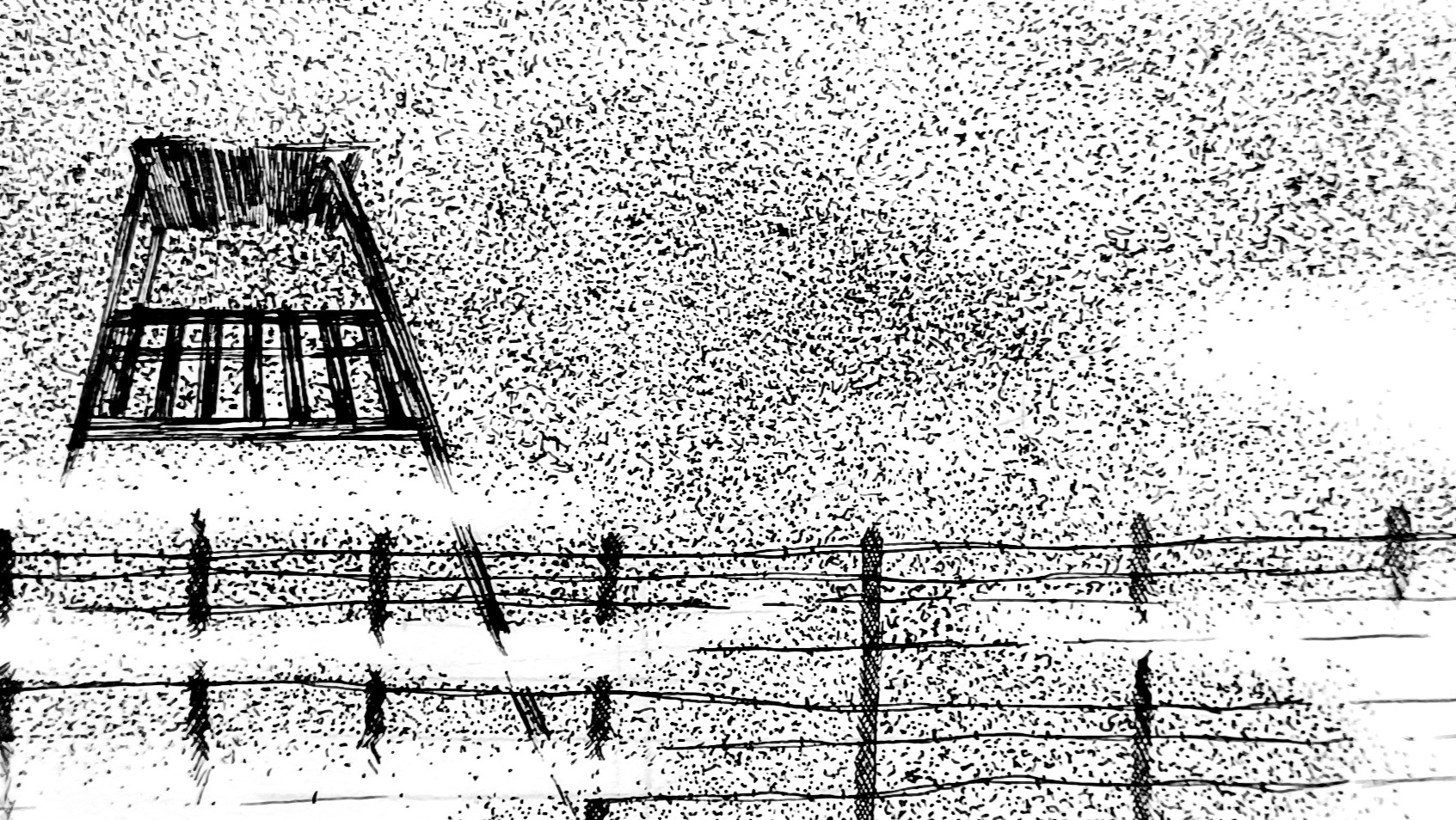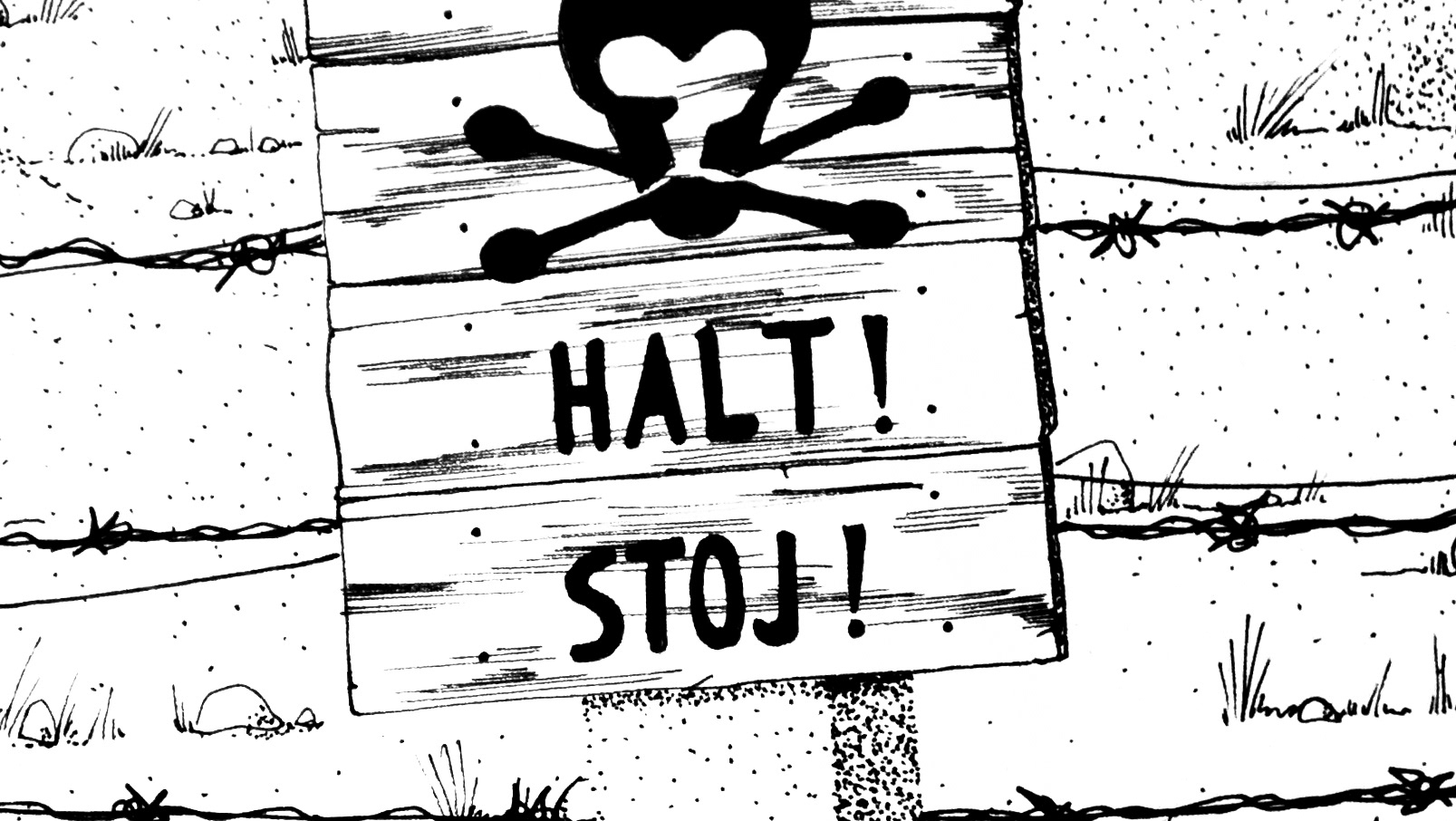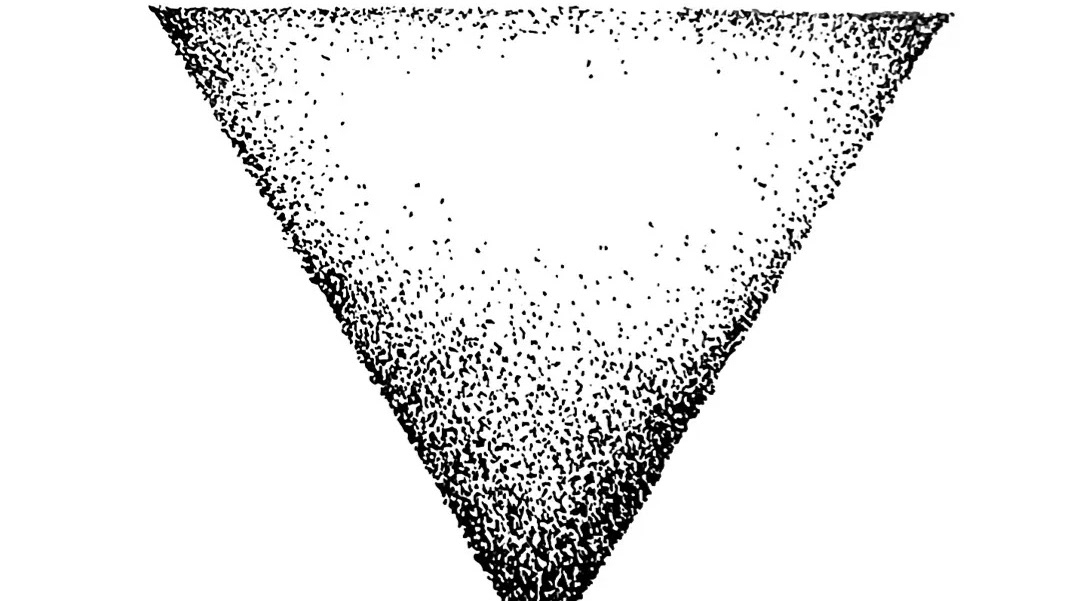the kiss
Today is the 18th of january 1945. The Soviet Union army is getting closer and closer, the Germans are retreating, Auschwitz-Birkenau is under evacuation. It's a big camp, the evacuation takes many steps, and each of those steps happens in complete desorganisation.
Aime is in the middle of a line, he's distraught. He's looking desperately for someone, he's looking for Genia.
9 years earlier, in 1936, communist, Aime fought for what he believed in, more rights for the workers, he lost his job for that fight. Then he worked any job he could find, he sold newspapers, waited tables at a restaurant,...
During the occupation, Aime resisted, and he was tasked with a peculiar job, a murder. Some communist party members had switched sides, it happened with Charles Delval, who joined a collaborationist political party. Some members of the communist party called for betrayal, some called for execution, Aime was tasked to follow him, find the right opportunity, and press the trigger.
The right opportunity never occurred, he was arrested and deported instead during a communist roundup.
In Birkenau, Aime was tasked to build the miradors. From the height of those towers he built, Aime saw the gigantic size of the camp, which had been difficult to evaluate from the ground. From there, he also saw the trucks coming and going, constantly, from the the deportation trains to the gas chambers, filled with prisoners on one side, empty on the way back.
He also saw smoke in the distance, carrying a smell impossible to describe, yet which could only mean one thing. And he saw the pits, filled with burning corpses. Aime wished he didn't see this, it also transformed him. He was now to survive and tell what he saw.
On the 27th of January 1943, Aime heard the french national anthem and watched the 31000 as they entered Birkenau. They walked right next to him, he didn't know he just met the woman who would save the love of his life.
6 months later, the quarantine arrived, Aime stayed in block 11, with the other 45000, he waited. Passing time is not an easy thing, there isn't much to do in quarantine. He volunteered to difficult kommandos in order to get extra food, another 45000 tattooed flowers around his number, 45934, and mostly he stayed inside.
Sometimes, the 45000 could access the courtyard, between block 10 and 11. It was a place meant for executions, the 45000 didn't like going there. A few enjoyed it a lot, like Georges Marin who got to talk to a nurse. And Aime Oboeuf, who met Genia.
Genia Goldgicht was a belgian teenager, jewish, deported as such with her mother, denounced by an acquaintance. Because they were healthy, Genia and her mother avoided the gas chambers, yet became involuntary guinea pigs in the german medical experiments. The nazis not only wished to exterminate the entire jewish population, they also researched to sterilise them.
Genia's mother soon disappeared. Genia was on her own, lost. A woman protected her, nursed her, shielded her as much as she could from the experiments, giving her useful advice. But there was only so much Doctor Adelaide Hautval could do to protect Genia, she couldn’t shield her entirely from the suffering from the experiments.
The prisoners couldn't escape, but they could sometimes communicate with the 45000 by exchanging notes. Genia saw through the opening of a plank the men in the courtyard, forced to perform absurd exercices. He saw her too, made fun of the situation, he made her smile as he sang a Charles Trenet melody. Aime managed to send her messages, they fell in love and dreamt of a hopeful future, without planks of wood between them, no experiment, no guards, no smoke, no shadow, only the 2 of them.
Once the quarantine ended and Aime left block 11, they managed to keep in touch, he made arrangements to work in a kommando close to her block with David Badache.
One day, Aime saw Genia outside, working in a garden, picking some herbs and bring it to dry . It was his chance, he took it, they hid near a shed and kissed. It was too risky, it was forbidden, a guard surprised them, Aime received 25 hits. He couldn't care less, he knew he had to kiss the love of his life. Aime's life had another meaning, tell the truth, love and protect Genia.
Back to the present, Aime decides to look for Genia. He walks through rows and rows of prisoners hopeful to go anywhere else than this hellish place, worried they might be going in an even worse place. After all, no one could have ever imagined a place like Auschwitz-Birkenau could have existed. Genia and Aime have a plan, they will escape during this march, run together, wherever they can, they want to take this chance.
A guard stops Aime in his search and orders him to find his place back. The plan didn't work, the women are ahead, too far ahead for Aime to join them.
Aime is alone again, the men are going to Mauthausen, the women someplace else. This might be it, Aime might never see Genia ever again. What is the point of all this if Aime loses Genia?
There is only one last hope now. There is the hope that Genia and him him will survive this, on their own, come back to France and Belgium, and Genia will send him a letter. He gave her an address, he hopes she will remember it.
He hopes.
She will.
Notes
Thank you for listening to this episode of 31000/45000, the story of 2 trains of french members of the resistance. My name is Matthieu Landour Engel.
This episode was about Aime Oboeuf, the evacuations, and of course, Genia Goldgicht. Genia is a fantastic woman, and she became Genia Oboeuf, because yes, they met again. Genia was transferred to Ravensbruck, Aime to Mauthausen, they both survived, they married, they had children, despite the experiments she went through. She was experimented on to be sterilised, and the nazi failed, which is such fantastic news. When I read about it, it gave me so much joy and hope, hearing about Genia made me optimistic about the future, just that.
Aime took risks for Genia, he tried his best to protect Genia's brother, who arrived in Auschwitz a little later than Genia and her mother. He succeeded until the evacuations, Genia's brother was transferred in Buchenwald, where he perished.
Genia and Aime took a huge risk by kissing, Aime was sentenced to 25 hits, which is cruel, but also not as cruel as it would have been in different circumstances. When he kissed Genia, the camp was run by Liebehenschel, and the rules were a little softer, as the prisoners were needed as labour for the war efforts rather than expendables. If Aime and Genia had kissed and had been caught under the ruling of Hoess, the sentence may have been much worse. I don't mean to say that Liebehenschel was a good man, I only mean to say that Hoess was far worse.
This episode is also about the evacuations. Once again, the 45000 were scattered, this time all over eastern Europe, in horrific condition, referred to as the death marches or the death trains. With this episode, we enter the last part of the story of the 31000 and the 45000. This is an estimate, 5 of the 45000 were sent to Buchenwald, 30 went to Flossenburg, 32 went to Sachsenhausen, 42 went to Gross Rosen, 20 to Mauthausen, and around 2 stayed in Auschwitz until the end.
Even though I know Genia and Aime told each other where to meet up after the war, the scene I wrote where Aime is looking for Genia during the beginning of the evacuation is not evidence based. They had apparently wished to escape during the evacuations, but it may have happened very differently.
There is a mention of Aime seeing a pit of burning corpses as he was working on the miradors in the beginning of his time in Auschwitz which would have been between the summers of 1942 and 1943. It is a cohesive piece of information which Aime Oboeuf testified. He could have seen a pitat that time, first as he was working on miradors, so the height would have given him a beter sight than on the ground. Also, aournd th end of 1942, a few gas chambers were functionning, on the edges of Birkenau, and corpses were burnt in pits. Some of those corpses had even been dugged up in ordr to be burnt and destroy any evidence.
There is a lovely interview documentary made by Thierry Martinet of Genia Goldgicht Oboeuf, which I will link at the end of this episode. I was also very lucky to discuss with Michel Oboeuf, Aime and Genia’s son. He told me about his parents, shared with me links and some informations, I was very fortunate to talk with him.
My sources for this story mostly come from the book Red triangles in Auschwitz, by Claudine Cardon Hamet, le convoi du 24 janvier by Charlotte Delbo, the website deportes-politiques-auschwitz.fr, memoire vive, the foundation for the memory of deportation website , the Maitron website, and the fantastic website auschwitz.org
Thank you very much for your attention, next episode will be about Marie-Jeanne Bauer, the last 31000 in Auschwitz.
